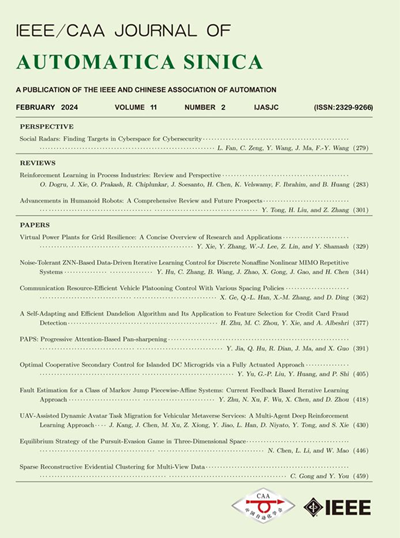Optimization Algorithms Based on Double-Integral Coevolutionary Neurodynamics in Deep Learning
IF 19.2
1区 计算机科学
Q1 AUTOMATION & CONTROL SYSTEMS
引用次数: 0
Abstract
Deep neural networks are increasingly exposed to attack threats, and at the same time, the need for privacy protection is growing. As a result, the challenge of developing neural networks that are both robust and capable of strong generalization while maintaining privacy becomes pressing. Training neural networks under privacy constraints is one way to minimize privacy leakage, and one way to do this is to add noise to the data or model. However, noise may cause gradient directions to deviate from the optimal trajectory during training, leading to unstable parameter updates, slow convergence, and reduced model generalization capability. To overcome these challenges, we propose an optimization algorithm based on double-integral coevolutionary neurodynamics (DICND), designed to accelerate convergence and improve generalization in noisy conditions. Theoretical analysis proves the global convergence of the DICND algorithm and demonstrates its ability to converge to near-global minima efficiently under noisy conditions. Numerical simulations and image classification experiments further confirm the DICND algorithm's significant advantages in enhancing generalization performance.深度学习中基于双积分协同进化神经动力学的优化算法
深度神经网络日益暴露于攻击威胁之下,与此同时,对隐私保护的需求也日益增长。因此,在保持隐私的同时,开发既鲁棒又具有强泛化能力的神经网络的挑战变得紧迫。在隐私约束下训练神经网络是最小化隐私泄漏的一种方法,其中一种方法是在数据或模型中添加噪声。然而,在训练过程中,噪声可能导致梯度方向偏离最优轨迹,导致参数更新不稳定,收敛速度慢,模型泛化能力降低。为了克服这些挑战,我们提出了一种基于双积分协同进化神经动力学(DICND)的优化算法,旨在加速噪声条件下的收敛和提高泛化。理论分析证明了DICND算法的全局收敛性,并证明了该算法在噪声条件下能够有效收敛到近全局最小值。数值模拟和图像分类实验进一步证实了DICND算法在提高泛化性能方面的显著优势。
本文章由计算机程序翻译,如有差异,请以英文原文为准。
求助全文
约1分钟内获得全文
求助全文
来源期刊

Ieee-Caa Journal of Automatica Sinica
Engineering-Control and Systems Engineering
CiteScore
23.50
自引率
11.00%
发文量
880
期刊介绍:
The IEEE/CAA Journal of Automatica Sinica is a reputable journal that publishes high-quality papers in English on original theoretical/experimental research and development in the field of automation. The journal covers a wide range of topics including automatic control, artificial intelligence and intelligent control, systems theory and engineering, pattern recognition and intelligent systems, automation engineering and applications, information processing and information systems, network-based automation, robotics, sensing and measurement, and navigation, guidance, and control.
Additionally, the journal is abstracted/indexed in several prominent databases including SCIE (Science Citation Index Expanded), EI (Engineering Index), Inspec, Scopus, SCImago, DBLP, CNKI (China National Knowledge Infrastructure), CSCD (Chinese Science Citation Database), and IEEE Xplore.
 求助内容:
求助内容: 应助结果提醒方式:
应助结果提醒方式:


